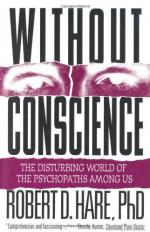|
This section contains 2,646 words (approx. 9 pages at 300 words per page) |

|
Doubtless from the earliest times in which groups established social customs, or mores, and enforced them, members of such groups who were tempted to violate these mores could almost feel the disapproval of their fellows and hear in their own minds a protesting outcry, perhaps some primitive equivalent of "No!" or "Don't!" In the early eighteenth century such inner voices or feelings were described as edicts of one's moral sense or of one's "conscience." This kind of account of these restraining influences became explicit with the development of faculty psychology, which involved the view that there are different faculties of the human mind responsible for different capacities or abilities which the mind seems to exhibit. Reason was thought of as the rational faculty, emotion as a passional one, and volition as a faculty that enables us to reach decisions and make choices. The moral faculty was thought by...
|
This section contains 2,646 words (approx. 9 pages at 300 words per page) |

|


